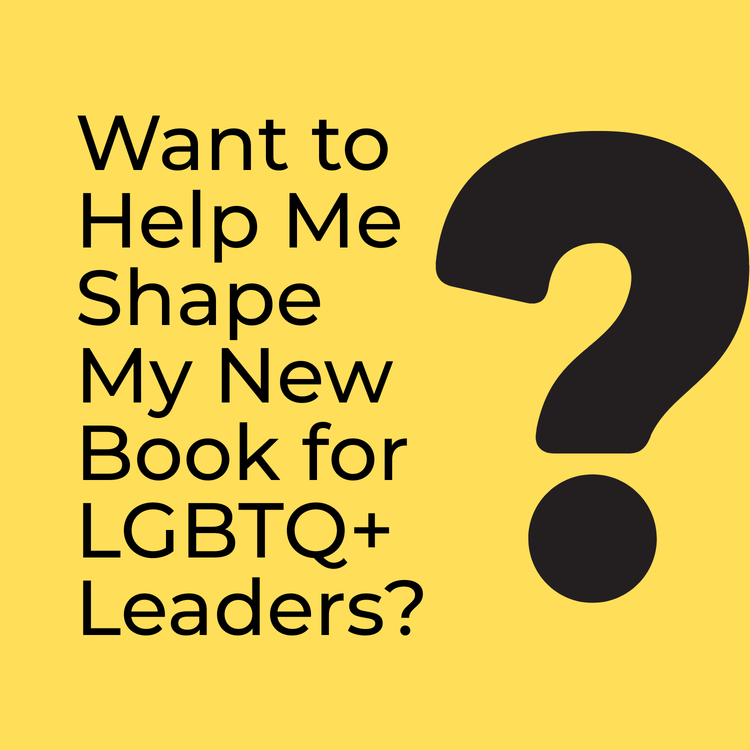What Happens When You Shout at the World and It Shouts Back?

If you’re always shouting at someone you think is wrong, neither of you will get to the truth.
When was the last time you got into a shooting match, a heated disagreement about being in the right, or told someone in no uncertain terms why they were mistaken or a racist/fascist/homophobe on social media?
How many times this week… or even today, already?
Anger only begets more anger and it never leads to agreement or resolution.
If you’re a queer change-maker leading a meaningful cause or mission, you are likely to push away the very people you need to support your efforts if you use anger as your default form of communication. With everything that’s happening in the world, it’s challenging at best to keep our frustration, opinions, and pronouncements in check. We need to be mindful of noticing how easy and how often we “lead” from anger.
But, there is good news.
Calm, compassionate, and reasonable communication is a skill that can be practiced. These are practices I’m acutely familiar with because I learned the hard way that rage posts were not attracting the kind of people I wanted to engage with and support. In fact, I attracted more angry people, and all we did was escalate our anger, whether that was shared or at each other.
If you’re sitting at the edge of, “Why shouldn’t I shout and freely express my anger in the face of prejudice, hatred, and injustice?”, allow me to suggest a different perspective.
Depending on where you are on the spectrum of reaction versus response, this practice may be one of subtle refinements to strengthen your skills in listening, understanding, and fostering deeper connection. Or, you might need to learn new skills that will help you manage your emotional state so that others will ask to hear more instead of shouting you down.
In the Tao Te Ching, the phrase, “shut the gates,” or “close the doors” is used in several chapters.
"Shut the gates" is a metaphor, not for hiding from the world, but for protecting the sanctity of your inner state from the distractions and temptations of the external world. When you are in a calm state of mind and body without anything pulling on your attention or causing tension, you can literally hear yourself think.
In those moments of quietude, what is the nature of your own voice? Are you aware of who you are, noticing your thoughts and sensory perceptions without judgement, or are you constantly pulled into worry, frustration, or anxiety about what you need to do, fix, or change?
Here’s a hard truth:
Freedom, peace of mind, and presence are your natural states.
You don’t have to believe me. If you don’t, answer me this: Does it feel good to believe that your natural states are oppression, disturbance, and distraction?
The latter makes for a very lonely life. But when you embody the former states of freedom, peace of mind, and presence, you are attractive to others and invite community, connection, and love.
When you “shut the gates,” you’re not denying or hiding from reality.
Instead, you’re taking care of your mind, body, and emotions, and re-connecting with who you are and what’s important to you so that you can more effectively connect with others. This is where leadership with integrity begins, by prioritizing self-care so that you have to capacity to care enough for the well-being of others.
When you then open the gate and re-enter the world, how do you lead others with conviction, peace of mind, and presence to foster social transformation for fairness, freedom, and human dignity for everyone?
The solution isn’t to silence yourself.
Instead, it’s having enough care for yourself that your leadership demonstrates self-respect and invites others into connection, not resistance.
👉 Learn how we can work together to help you lead with clarity, calm, and conviction.





Member discussion